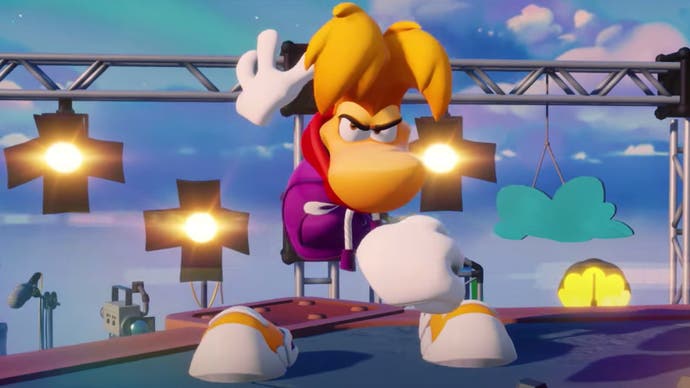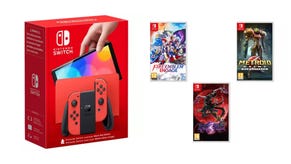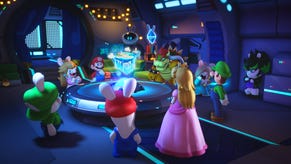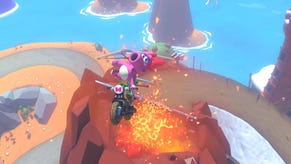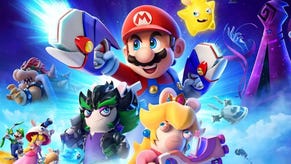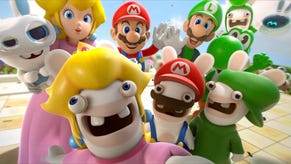Rayman's Mario + Rabbids Sparks of Hope DLC gets August release date
Arrives in standalone story adventure.
Rayman's long-awaited return mightn't be quite what fans were hoping for - arriving as he is in a bit of DLC for the excellent Mario + Rabbids Sparks of Hope instead of his own game - but something's (hopefully) better than nothing, and Ubisoft has now confirmed its beloved limb-flinging mascot will be making his entrance on 30th August this year.
Mario + Rabbids Sparks of Hope: Rayman in the Phantom Show is described as a brand-new DLC adventure that'll be separate from the base game's storyline. Here, Rabbid Mario and Rabbid Peach stumble across the Space Opera Network, an "uncanny" TV studio run by the Phantom, one of the antagonists in Ubsoft's previous Mario + Rabbids game, Kingdom Battle.
"As the TV studio's rating are lower than ever," Ubisoft explains in its release date announcement, "he needs the help of true stars to help him get his past glory back."
Enter Rayman, who, along with Rabbid Mario and Rabbid Peach, will be playable in the DLC, bringing greater verticality to stages thanks to his haircopter ability. Additionally, players can make use of Rayman plunger blaster and other aerial traversal powers - all inspired by classic Rayman games - to open up "new tactical possibilities".
Rayman in the Phantom Show sees David Gasman reprising his role as the titular mascot, and features a soundtrack from regular Mario + Rabbids composer Grant Kirkhope, this time joined by Christophe Héral, who created music for the likes of Rayman Origins and Rayman Legends. It'll be available as part of Sparks of Hope's Season Pass and Gold Edition, or can be purchased separately as DLC for the base game.
Sparks of Hope's Rayman DLC is, as far as Ubisoft has indicated, the very final bit of post-launch content for a game which, by the publisher's own admission, underperformed financially, despite launching to considerable critical acclaim. Earlier this year, Ubisoft CEO Yves Guillemot admitted its underperformance was likely down to the publisher's decision to release a sequel on Switch, ignoring Nintendo's advice to "only do one iteration [of Mario] on each machine".
